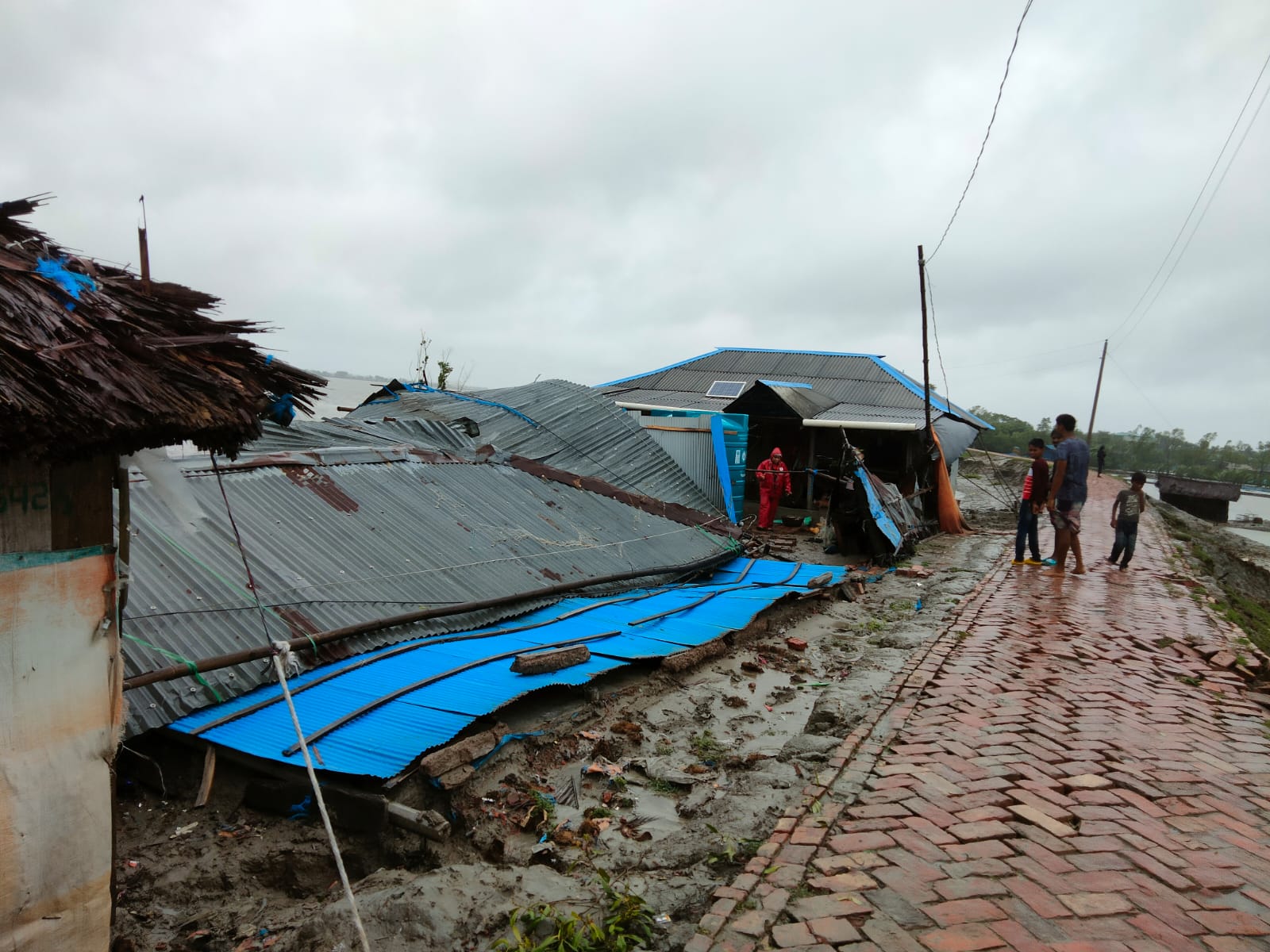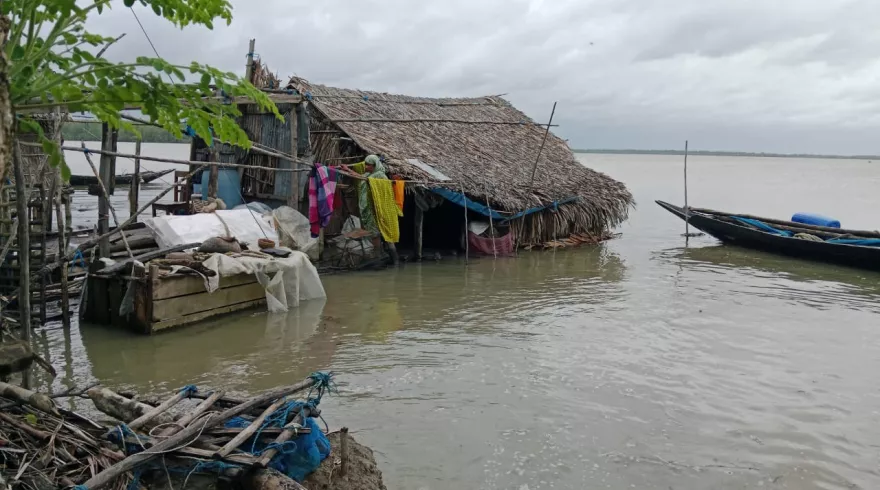
Start Bangladesh activates two key funding mechanism to deliver rapid financing of close to £1 million to Cyclone Remal-stricken areas
Cyclone Remal caused heavy rain and thunderstorms across coastal Bangladesh, leaving an estimated 800,000 people displaced from their homes when it made landfall on the midnight of 26 May.
Published:
Time to read: 3 minutes
Cyclone Remal caused heavy rain and thunderstorms across coastal Bangladesh, leaving an estimated 800,000 people displaced from their homes when it made landfall on the midnight of 26 May.
Start Bangladesh, together with FOREWARN Bangladesh, have been closely monitoring the development of a low-pressure system in the Bay of Bengal since its initial formation on 22 May. This collaborative effort between humanitarian actors and experts enables a comprehensive understanding of a cyclone’s trajectory and potential impact, allowing Start Bangladesh members to be well-positioned to deliver rapid and targeted assistance when the need arises.
Bangladesh experiences tropical cyclones primarily during two peak seasons: March to July and September to December. May and October see the highest concentration of storms in frequency and intensity. In recognition of these risks, Start Network has proactively positioned two financing mechanisms - Start Fund and Start Ready - in Bangladesh.
Based on forecasted data, Uttaran and the Center for Natural Resource Studies raised a Start Fund anticipation alert on 23 May and within 12 hours, funding of £17,000 was awarded to the local organisations. Both Start Bangladesh members swiftly began implementing lifesaving anticipatory actions in coordination with government authorities. These actions included supporting evacuations, providing access to cyclone shelters, and ensuring communities have essential supplies like water and food.
The pre-positioned financing through Start Ready allowed members and communities to develop pre-arranged contingency plans in anticipation of cyclone season. These contingency plans sprung in action when the Bangladesh Cyclone System thresholds were met:
- A strong cyclone at least of severity seen on average 1-in-4 years,
- And over 124,108 people forecasted to be impacted.
On 24 May, all of these criteria were met, triggering the Start Ready mechanism to release funding of £180,000.
Although necessary preparedness and anticipation measures were taken, the impact of Cyclone Remal was devastating, leading to the activation of the Start Fund Bangladesh on 28 May response mechanism to deliver swift humanitarian assistance to communities. A total of £800,000 was awarded to members to implement activities in Patuakhali, Satkhira, Barguna and Khulna.
Start Bangladesh timeline:
- 22 May - a low-pressure system was being monitored by Start Bangladesh and Forewarn Bangladesh
- 23 May - Start Fund Anticipatory Alert was activated and £17,000 was awarded
- 24 May - Start Ready mechanism was activated after thresholds were met and £180,000 was released for prepared contingency plans
- 26 May - Cyclone Remal made landfall
- 28 May - Start Fund Response Alert was activated
- 30 May - £800,000 was allocated following the alert activation

A flooded house in Bangladesh © CNRS Dacope Team
A total of close to £1 million was allocated and awarded to Start Bangladesh members, coming from multiple financing streams for both crisis anticipation and response. This demonstrates the demand for humanitarian financing that is readily available in-country and instantly accessible when needed.
Cyclone Remal is the first event that triggered the release of funding from both Start Fund and Start Ready. In the coming months, we aim to evaluate the outcomes of both programmes and their impact on communities in Bangladesh to see how both approaches complement or contradict each other.
